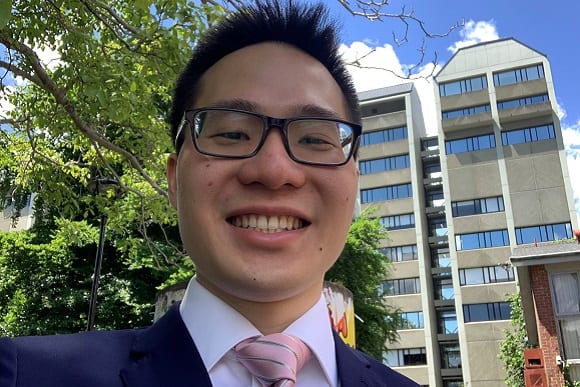
Dr Dennis Chan
‘The evaluation of functional imagining in the management of Neuroendocine Tumours’
University of Sydney, NSW
Awarded 2020
Co-funded by the Yaxley Family
“The more I studied these tumours, the more I realised how essential further research would be to help improve the care of those who have them. Hence, I decided to pursue translational research in this area.”
Researcher Profile
Dr Dennis Chan is a physician who is undertaking research to improve the management of neuroendocrine tumours. He completed his Bachelor of Medicine and Bachelor of Surgery alongside a Master of Bioethics and Health Law at the University of Otago, New Zealand, in 2012. Since then, he has undertaken specialist training with the Royal Australasian College of Physicians as a Specialist Endocrinologist and General Physician.
In 2019, he completed a Master of Science at Barts and the London School of Medicine focusing on Cushing’s Syndrome caused by neuroendocrine tumours. This has led him to pursue a PhD in translational research at the University of Sydney focusing on neuroendocrine tumours and their management.
Project Summary
Neuroendocrine tumours (NETs) are a group of cancers with an increasing incidence rate. They arise from hormone-secreting (endocrine) tissues of the body and typically have distinctive hormone receptors on their surface. These hormone receptors allow for unique diagnostic and treatment methods to be used in the management of NETs, over and above conventional cancer therapies and technologies. These tools include 68Gallium-PET functional imaging for the diagnosis and follow up of NETs, and peptide receptor radionuclide therapy (PRRT) for treatment of these tumours. Despite their promise, there are many uncertainties about how to best incorporate these technologies into patient care. This project aims to address such knowledge gaps, specifically in relation to 68Gallium-PET functional imaging and PRRT using data collected from the CONTROL NETs study.
The CONTROL NETs study is an existing multicentre trial that is nearing completion. Its primary aim is to evaluate the combination of PRRT and chemotherapy against the currently proven treatments in pancreatic NETs and mid-gut NETs. The volume of unique data points collected over the course of the trial will also facilitate further exploratory analyses to better inform our understanding and management of pancreatic and mid-gut NETs.
Using the rich repository of information collected from the CONTROL NETs study, this project aims to analyse how 68Gallium-PET functional imaging can be used most effectively alongside conventional functional imaging diagnostic techniques to improve the quality of care for patients with NETs. Additionally, health economic analyses will also be conducted to evaluate how health dollars can be maximised when incorporating PRRT and 68Gallium-PET functional imaging in the management of neuroendocrine tumours.
Supervisors: Associate Professor Nick Pavlakis & Associate Professor Richard De Abreu Lourenco